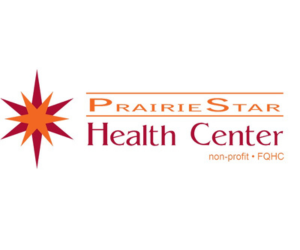KANSAS CITY, Kan. – The University of Kansas Cancer Center has received a $100 million lead gift to build a new, state-of-the-art destination cancer center. This gift is both the largest gift ever given by the Sunderland Foundation and the largest ever received by the University of Kansas and The University of Kansas Health System.
This gift raises the total to $143 million for a building to bring together cancer research, treatment and patient care teams, transforming cancer care in the region.
“We believe The University of Kansas Cancer Center is poised to change cancer research and care for generations,” said Charlie Sunderland, trustee of the Sunderland Foundation and former chair of The University of Kansas Hospital Authority Board’s Quality Committee. “Giving people the opportunity to receive such a high level of quality cancer treatment close to home is a gift like no other. I’m grateful for the foundation’s role in making this possible.”
The Sunderland Foundation gift is one of several significant investments in the new building. Earlier this year, it was announced that U.S. Senator Jerry Moran (Kan.) — a member of the Senate Committee on Appropriations — secured $43 million in congressionally directed spending to plan and help build research aspects of the new facility.
“After years of hard work and dedication, The University of Kansas Cancer Center was awarded the NCI’s comprehensive cancer center designation, opening up new possibilities and greater federal investment,” said Moran. “The KU Cancer Center is already a nationally recognized leader in the fight to treat and cure cancer. With a new, state-of-the-art cancer center, The University of Kansas Cancer Center can expand its legacy and capabilities to conduct a greater number of innovative research projects, which will undoubtedly lead to improved treatments for patients.”
University of Kansas Chancellor Douglas A. Girod, M.D., recognized the importance of such investments to the future of the cancer center.
“The funding provided by the Sunderland Foundation, combined with the appropriation secured by Senator Moran, will enable the KU Cancer Center to enhance its work in research and patient care while fulfilling its duty to provide public education and outreach programs, especially to diverse communities and high-risk populations,” said Girod. “More broadly, by strengthening the KU Cancer Center, this funding elevates the entire university and strengthens KU’s position as a leading national research institution and proud member of the Association of American Universities. We deeply appreciate the Sunderland Foundation and Senator Moran’s continued support of the KU Cancer Center and the university, and we look forward to partnering with them in the future on initiatives that benefit Kansas.”
KU Cancer Center leadership has long had a vision to bring the entire cancer community — from physician-scientists to researchers to physicians and clinical staff — all under one roof. Doing so enables spontaneous and serendipitous collaborations, which often lead to fresh, new thinking needed to solve cancer’s most complex puzzles, a belief closely held by Roy Jensen, M.D., vice chancellor and director of the KU Cancer Center.
“Our vision is for The University of Kansas Cancer Center to be a beacon of hope and a global destination for both those with cancer and for scientists and clinicians seeking to cure cancer,” Jensen said. “This building will be a hub that brings together leading-edge patient care and innovation as we seek to transform both cancer care and cancer research in our quest to cure cancer — together. Patients treated at NCI-designated cancer centers have a 25% greater chance of survival compared to other cancer centers because of the enhanced relationship between patient care and research. This building will advance our goals even further, serving as a catalyst for breakthroughs that will change cancer care on the national level.”
Currently, The University of Kansas Cancer Center’s labs and researchers are scattered across multiple campuses in the Kansas City metro area and Lawrence, Kansas. There is a need to provide options to expand space for patient care and cancer research, as well as foster multidisciplinary collaborative research efforts. On the heels of the KU Cancer Center’s NCI comprehensive cancer center designation, a world-class research and clinical space putting patients at the center of science and clinical care will make it a global destination for the best cancer treatment.
“Advancing the KU Cancer Center through this funding and this new building will continue to benefit the University of Kansas Medical Center, its researchers and its students,” said Robert D. Simari, M.D., executive vice chancellor of KU Medical Center. “It also means more collaboration, more cutting-edge research and more opportunities to pursue team science with researchers, scientists and faculty members throughout our schools of Medicine, Nursing and Health Professions.”
“The University of Kansas Cancer Center is a transformative engine, which will not only reshape how cancer care is delivered but also our community as a destination for the very best cancer care available anywhere,” said Tammy Peterman, M.S., FAAN, president, Kansas City division, and health system executive vice president, chief operating officer and chief nursing officer. “We are doing things at the cancer center not done anywhere else in the country. With our nationally recognized specialists and world-class care teams, we will deliver even more groundbreaking treatments and innovations.”
The new facility will be located on the 39th and Rainbow campus. It will be built in phases, with the goal of breaking ground on the first phase by the earliest in the fall of 2024. The new building will bring expanded cancer care and research together in one place. Patients will have access to more innovative clinical trials and groundbreaking therapies developed on site. In addition, the whole patient experience — from nutrition and social workers to pathology and imaging, and everything in-between — will happen in one place. Researchers also will be able to collaborate in real time with physicians on personalized treatment options, making them more quickly available to patients.
“We do big things in Kansas City, due in large part to the generosity and vision of people like Charlie and Kent Sunderland and the Sunderland Foundation,” said Bob Page, president and CEO of The University of Kansas Health System. “The commitment of our community and elected officials like Senator Moran have placed The University of Kansas Health System and The University of Kansas Cancer Center at the center of Kansas City’s transformation. This new building is more than a building; it is about taking a bold step to say, ‘We believe we can transform the way cancer research and care is provided in our region, across this country and around the globe.’ We not only will save mor
e lives, we will change more lives and our community for the better.”















































